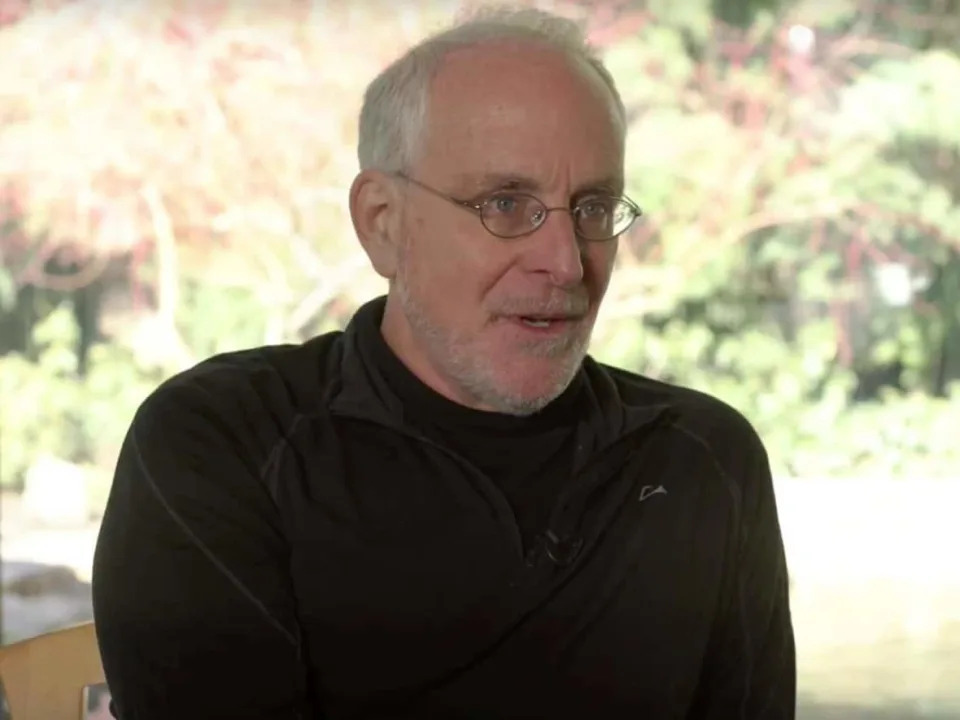THE DISEASE OF CELIBACY
Jesuits of Canada release names of priests 'credibly accused' of sexually abusing minorsMon, March 13, 2023

Father Erik Oland led the Canadian effort to publicly disclose the names of accused sexual abusers in the Jesuits of Canada. (Jesuits of Canada - image credit)
WARNING: This article contains detailed discussion of the sexual abuse of minors.
The Jesuits of Canada, a religious order of the Catholic Church, has released a list of 27 priests and brothers it says were "credibly accused" of sexually abusing minors over the past six decades.
"Over the past three or more decades, revelations of grievous abuse by clergy dating back many generations have come to light, and the Church has been slow to respond," Father Erik Oland, leader of the Jesuits of Canada, said in a letter to the public posted Monday on the Jesuits of Canada website.
"As we have met with survivors, listened to their stories and read the reports of their experiences, we have felt shame and become convinced that the only path forward is one of truth-telling, healing and reconciliation."
The Jesuits refused a request for an interview. In an emailed response, a spokesperson said, "We do not regard the release of this list as an end, but a beginning of our journey with survivors. The list is intended to expand and evolve as new information comes to light."
The religious order announced it would release the names in December 2019, after it conducted a comprehensive audit of 60 years worth of files with the help of King International Advisory Group, a third-party risk assessment organization.
The Jesuits originally planned to release the list by January 2021. In his statement, Oland attributed the delay to a COVID-19 pandemic slowdown. The release of the list was first reported by the Globe and Mail.
CBC News has not independently verified the allegations against the 27 men on the list. The majority of them are dead.
The "vast majority" of the cases surfaced after the alleged perpetrator had died, according to Oland's statement. He also noted some of the cases never became criminal or civil cases.
Leona Huggins, client support specialist for KazLaw Personal Injury Lawyers, which represents victims of sexual abuse, welcomed the list's release.
"I'm grateful to the Jesuits for having fulfilled their promise that they would get a list out," Huggins, who was sexually assaulted by a priest in the 1970s, said from Vancouver.
"We're a far cry in Canada behind most other jurisdictions that have had inquiries that have had full reports with thousands of priests named."
Advocates for survivors respond
Huggins, a former volunteer with the Survivors Network of those Abused by Priests (SNAP), also has questions about the scope of the documents those working on the list were able to review, and how the list of names was developed.
She would also like to see the Jesuits of Canada ask other orders to follow their lead.
According to the Jesuits of Canada, "credible accusations" are ones where it "appears more likely than not that an offence occurred," including accusations by "credible witnesses, parishioners, civil authorities or clergy." They can also include "plausible hearsay evidence" that would not be permissible in legal proceedings.
Several of the priests on the list worked in residential schools and Indigenous communities, including George Epoch, who is accused of sexually abusing more than 100 children.
Many of the priests were transferred multiple times, to schools and communities across the country, from Alberta to Newfoundland.
Patrick Wall, an American lawyer and clergy abuse expert, said seeing a priest or brother's name on the list may be validating for survivors who didn't report their abuse.
"Some of the survivors, I'm sure find great solace that their perpetrator's name is on there, and they're not the only one," he said from Los Angeles.
"I would expect the numbers to be much higher," he noted.
Support is available for anyone who has been sexually assaulted. You can access crisis lines and local support services through this Government of Canada website or the Ending Violence Association of Canada database. If you're in immediate danger or fear for your safety or that of others around you, please call 911.

No comments:
Post a Comment